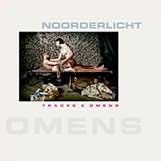Traces and Omens: Photography and the Visualization of Time
From the book published as a catlog for the exhibit of the same name (Traces and Omens, Stichting Aurora Borealis, under the auspices of Noorderlicht 2005): Photography is said to be the medium
of the split-second, the art of the decisive moment. In the blink of an eye
it lends meaning to what takes place around us. Isolated from the sea of time
which surrounds them, these moments make their way through our society. They
land on the pages of newspapers and in family albums, appear on billboards
and computer screens, hang in museums or on refrigerator doors. There they
begin to live a life of their own, as a fact or an omen, as evidence or a warning.
Our society today pours these moments out on us lavishly. Day in and day out
we have new images dished up to us, images that barely have caught our attention
before they are replaced by still newer images. Time after time we are confronted
with fleeting fragments that awaken the suggestion that past and future are
inextricably linked. But can a photo tell us everything? Can the frozen fraction
of a second do justice to the many facets of an event? How do you visualize
change and development? How do you show cause and effect? Those are the questions
Traces & Omens is about, an exhibition and a book dealing with the visualization
of time. In a extensive presentation 42 photographers from 18 countries try
to set time in motion again with still images, in an attempt to free photography
from the moment. They create family narratives and social documents, photograph
landscapes, interiors and traces of war, make cool records or stage imaginative
scenes. They reveal the budding of the body and the waning of beauty. They
show us what we are and must not forget, and give the split second a past and
a future again. Traces & Omens is about looking at time and therefore about
photography itself. — Wim Melis
– / +
